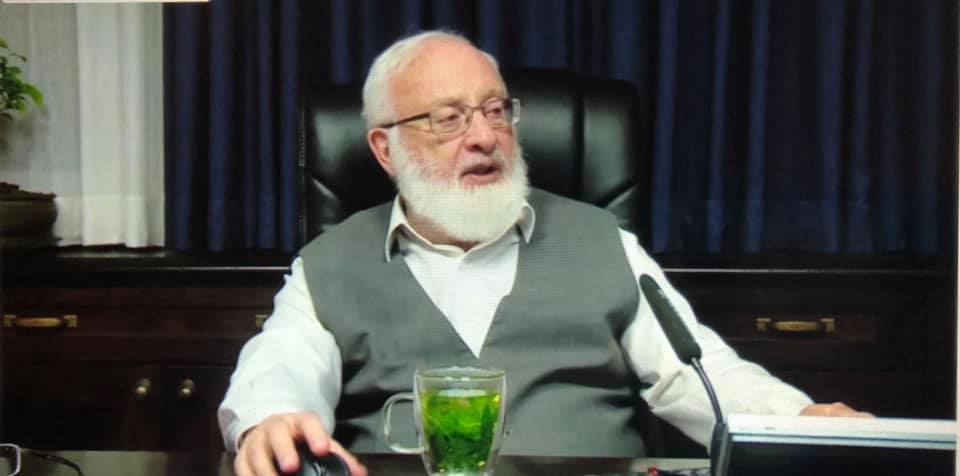HOCHMA: TIKKUN CHATZOT תקון חצות – LESSON WITH RAV MICHAEL LAITMAN

Rabash. Purpose of Society – 2. 1-2 (1984)
Purpose of Society – 2
Article No. 1, Part 2, 1984
Since man is created with a Kli called “self-love,” where one does not see that an act will yield self-benefit, one has no motivation to make even the slightest motion. And without annulling self-love, it is impossible to achieve Dvekut [adhesion)] with the Creator, meaning equivalence of form.
And since it is against our nature, we need a society that will form a great force so we can work together on annulling the will to receive, called “evil,” as it hinders the achievement of the goal for which man was created.
For this reason, society must consist of individuals who unanimously agree that they must achieve it. Then, all the individuals become one great force that can fight against itself, since everyone is integrated in everyone else. Thus, each person is founded on a great desire to achieve the goal.
To be integrated in one another, each person should annul himself before the others. This is done by each seeing the friends’ merits and not their faults. But one who thinks that he is a little higher than his friends can no longer unite with them.
Also, it is important to remain serious during the assembly so as not to lose the intention, as it is for this aim that they have gathered. And to walk humbly, which is a great thing, one should be accustomed to appear as though one is not serious. But in truth, a fire burns in their hearts.
Yet, to small people, during the assembly one should be wary of following words and deeds that do not yield the goal of the gathering—that thus they should achieve Dvekut with the Creator. And concerning Dvekut, see the essay, “Matan Torah.”
But when one is not with one’s friends, it is best to show nothing of the intent in one’s heart and appear to be like everyone else. This is the meaning of “walk humbly with the Lord your God.” While there are higher interpretations of that, the simple explanation is also a great thing.
Hence, it is good that there will be equality among the friends who unite, so one can be annulled before the other. And there should be careful watch in the society, disallowing frivolity, since frivolity ruins everything. But as we have said above, this should be an internal matter.
But when there is someone who is not from this society, no seriousness should be shown, but to equalize with the person who has just come in. In other words, avoid speaking of serious matters, but only of things that suit the one who has just entered, who is called “an uninvited guest.”
 MONDAY PRAYER: BINAH-SHACHARIT שַחֲרִית MORNING PRAYER
MONDAY PRAYER: BINAH-SHACHARIT שַחֲרִית MORNING PRAYER MONDAY PRAYER: BINAH-TIKKUN CHATZOT תקון חצות-TIKKUN RACHEL & TIKKUN LEAH
MONDAY PRAYER: BINAH-TIKKUN CHATZOT תקון חצות-TIKKUN RACHEL & TIKKUN LEAH MONDAY PRAYER: BINAH- KABBALAH MED-TIKKUN CHATZOT תקון חצות – LESSON WITH RAV MICHAEL LAITMAN
MONDAY PRAYER: BINAH- KABBALAH MED-TIKKUN CHATZOT תקון חצות – LESSON WITH RAV MICHAEL LAITMAN